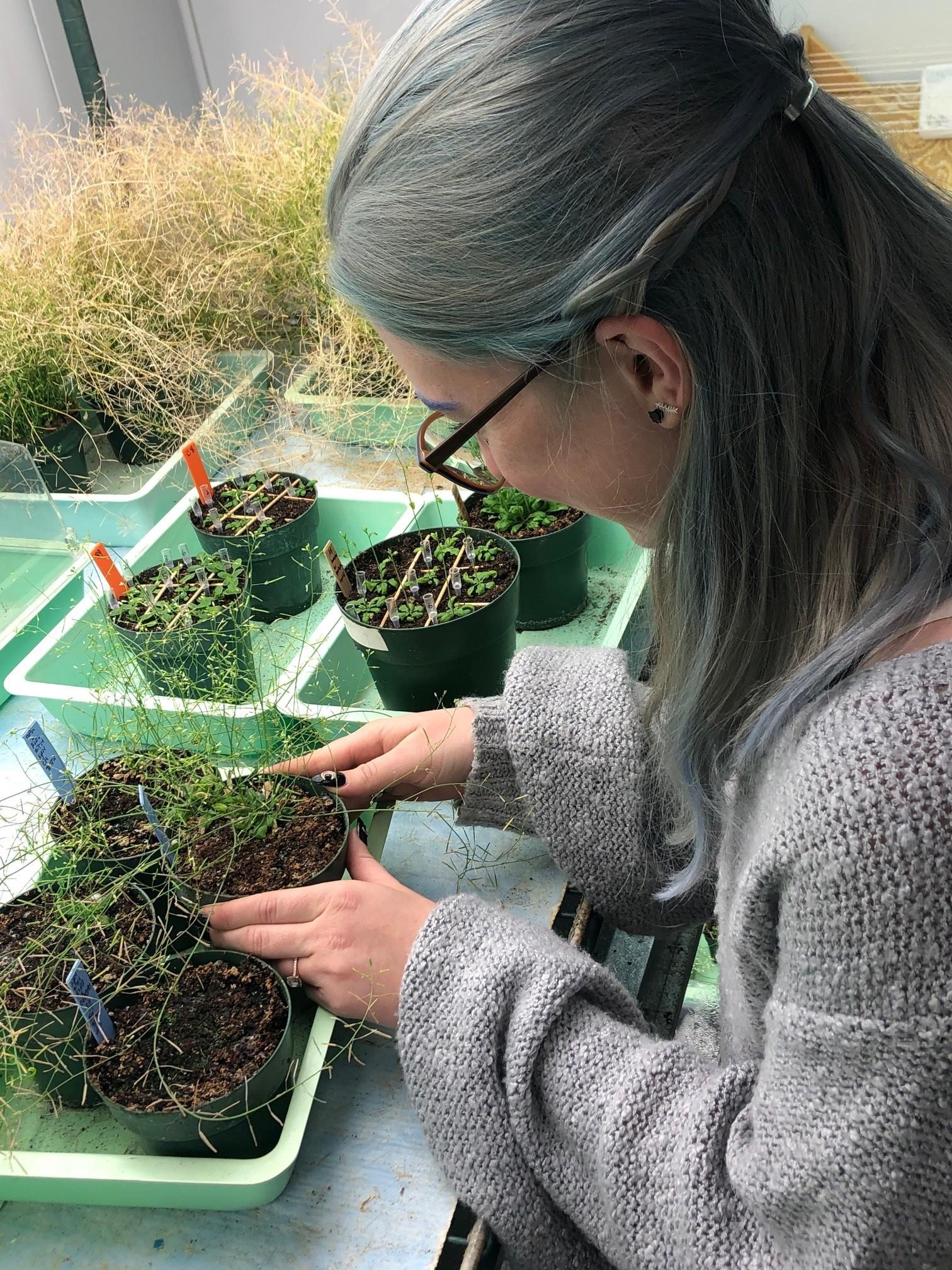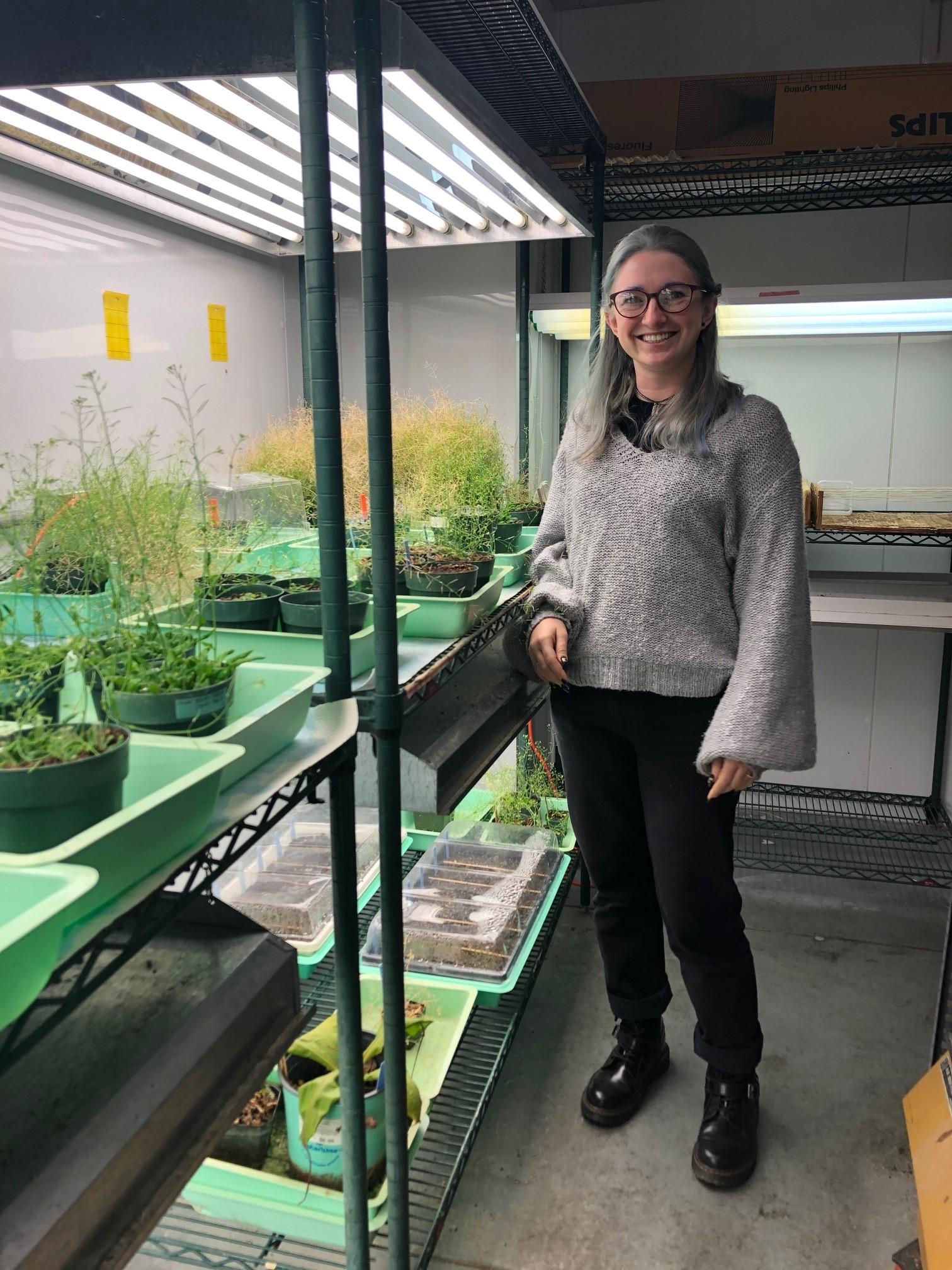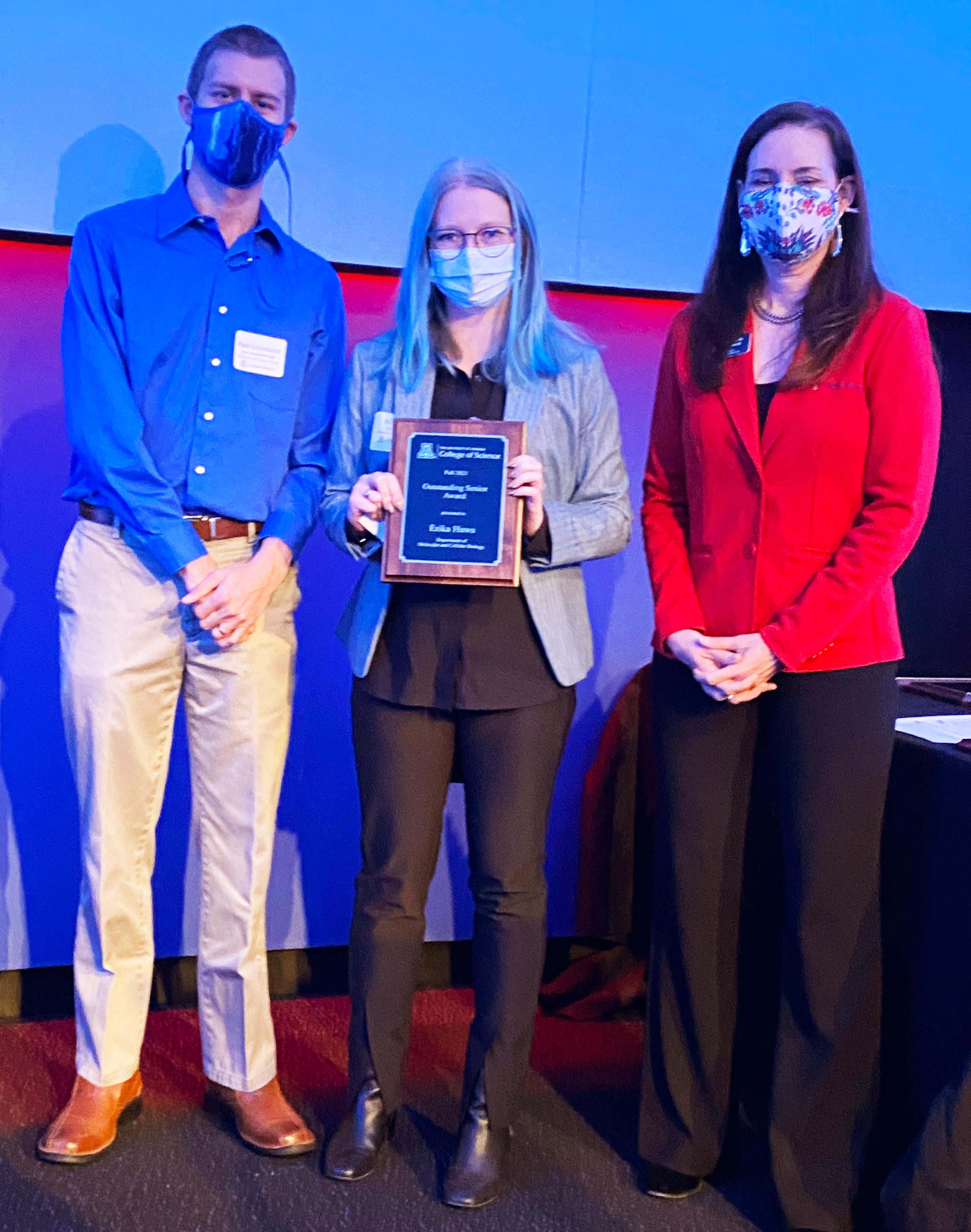Erika Haws MCB 2021 Outstanding Senior for research on plant roots
 Erika Haws loves plants. She has plants all over her house and volunteers at a community garden to help grow plants and donate the produce. She also thinks that biotechnology is “incredibly cool.” Erika transferred to the University of Arizona from Mesa Community College a few years ago to learn more about plants and biotechnology. Pursuing a degree in Molecular and Cellular Biology (MCB) has helped her explore her love for both plants and biotech.
Erika Haws loves plants. She has plants all over her house and volunteers at a community garden to help grow plants and donate the produce. She also thinks that biotechnology is “incredibly cool.” Erika transferred to the University of Arizona from Mesa Community College a few years ago to learn more about plants and biotechnology. Pursuing a degree in Molecular and Cellular Biology (MCB) has helped her explore her love for both plants and biotech.
Erika Haws received the December 2021 Outstanding Senior Award in the Molecular and Cellular Biology Department for her research on Arabidopsis thaliana. Her research is part of Dr. Frans Tax’s lab where she investigates how plants initiate root growth. In soils, there are areas that have more nutrients, such as spots that are higher in nitrogen, and plants grow their lateral roots those locations to have the best chance for survival. But how do plants signal where to send those roots? This is what Erika is trying to figure out.
Erika is looking at different knockout mutants, plants where certain genes are not expressed, to see the response in lateral root initiation. The genes that Erika is investigating impact different hormone levels, specifically the plant hormone auxin, that signals lateral root growth. However, understanding this response can be complicated because there is a lot of interplay between genes and how they impact pathways, so what might seem like a straightforward change could set a different response in motion.
Additionally, getting the right combination of knockout mutants takes a lot of work. Erika says that “crossbreeding plants is very time consuming.” In order to cross a gene in, many generations of plants need to be grown, crossed, and genetically tested via PCR to get to right genotype. Only then can experiments be done to look at the responding phenotype. Erika can then look at where auxin has accumulated via fluorescent microscopy to see the difference in plant signaling. She began this project a year and a half ago and is only starting to see results now. However, Erika is committed.
She wants to continue at the University of Arizona for her graduate work. Erika says that “there are so many amazing labs at UA that are doing innovative research.” With her MCB degree, the door is wide open to pursue many possibilities. Erika has a very bright future. Congratulations!

